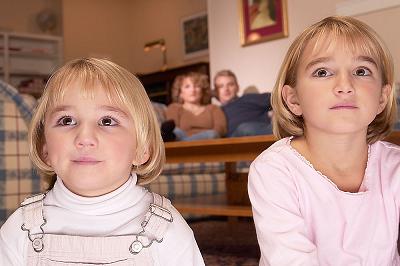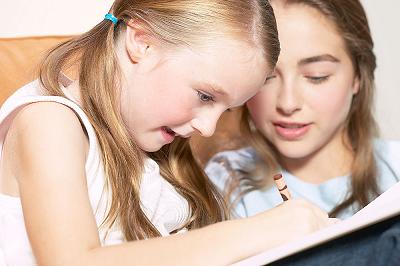How can therapy or counselling help my child or teen?
Parents often wonder when it is appropriate to seek psychological treatment for their children's difficulties. They also wonder how therapy or counselling can be helpful, particularly for younger children. It is also not unusual for parents to be unsure how therapy for children and teens works or what it involves.
When and why do children, teens, and parents come to therapy?
Psychological treatment in the form of therapy or counselling is appropriate under a variety of circumstances. Typically, what prompts a parent to seek out psychological services for their child is a significant concern regarding their child's behaviour, emotions, or thinking patterns. When problems persist or worsen over time despite efforts to improve the situation, parents often wonder if their child might benefit from therapy or counselling services. 
A child’s problems may have come about because of a particularly stressful experience the child has undergone or they may be related to typical childhood stressors such as anxiety regarding family, peer, or school issues. Sometimes the difficulties are related to relatively common but challenging behaviour and parenting demands such as temper tantrums or opposition to parental authority. In other circumstances, the child or teen may be demonstrating more extreme behaviour, thinking, or emotions that interfere with their ability to adapt and cope effectively. In some cases, treatment may be sought because the child or teen has been diagnosed with a specific mental health problem such as depression, an anxiety disorder, or obsessive-compulsive disorder. In all of these situations, therapy and counselling services can be helpful. In general, when a child's problems do not resolve within a reasonable time-frame or when the degree of difficulty they are experiencing is interfering with their normal development or overall enjoyment of life, psychological intervention is recommended.
What happens in therapy and how does it help?
When you come to Children’s Psychological Services you will be assisted in knowing whether therapy or counselling is an appropriate way to address your concerns. Time will be taken to gather information about your concerns and possible contributors to the problems that prompted you to seek help. You will be asked about the primary problem, other concerns you may have, your child’s development, learning, and medical history, your family history, and other factors that can impact a child’s psychological health and well-being. Based on this initial assessment, you will be provided with recommendations regarding further assessment and treatment options. We may recommend additional assessment if warranted or we will suggest appropriate treatment options to begin to address your child’s difficulties and your parenting concerns. Treatment options may include parental guidance counselling, individual therapy for the child or teen, family therapy, or a combination of these approaches.
Parents are always active participants in the therapy of young children. In addition to direct therapy for the child, parents are provided with information and strategies to enable them to directly assist their child. When teens come to therapy, the degree of involvement of parents is carefully negotiated in order to ensure that the relationship between the therapist and the teen can remain therapeutic and effective. Parents are provided with general feedback regarding how their child is doing in therapy but specific information may be held in confidence between the child or teen and the therapist. This level of privacy and trust between the therapist and child or teen is a necessary component of effective psychological treatment.
In addition to direct therapy for the child, parents are provided with information and strategies to enable them to directly assist their child. When teens come to therapy, the degree of involvement of parents is carefully negotiated in order to ensure that the relationship between the therapist and the teen can remain therapeutic and effective. Parents are provided with general feedback regarding how their child is doing in therapy but specific information may be held in confidence between the child or teen and the therapist. This level of privacy and trust between the therapist and child or teen is a necessary component of effective psychological treatment.
Therapy offers children and teens the opportunity to identify, discuss and understand problems and to develop necessary coping skills. Therapy also provides the opportunity to address parental concerns, educate parents regarding their child's unique needs, and assist parents in meeting these needs. It is a form of treatment that can help children and families understand and resolve problems, change behaviour patterns, and generally make positive changes in their lives. It involves a variety of techniques and methods used to help children and adolescents who are experiencing difficulties with their emotions, thoughts, and behaviour.
Most adults are familiar with therapy as a specific kind of conversation that takes place between a therapist and a client. This conversation is geared towards assisting the client in developing a better understanding of their difficulties, improving their ability to cope with and solve problems effectively, and providing support and understanding as the client struggles with difficult challenges. The therapy relies on communication and the relationship between the therapist and the client as the basic tool for bringing about change.
In most respects, the goals of therapy with children and teens are the same as the goals in adult therapy. The therapist provides emotional support as the young person faces challenges and helps to improve the young person’s understanding, coping, and problem solving in the face of challenges. In addition, the therapist works with parents to assist them in understanding their child’s difficulties and in developing their own skills and resources when facing parenting challenges. At a parents request, the therapist may also provide information or consultation to other caregivers, educators, or health care providers involved in supporting the child.
Therapy with adolescents often looks very similar to the kind of “talk therapy” familiar to most adults. Teens are guided in taking part in a conversation that provides them with the opportunity to reflect on their behaviour, experiences, relationships, hopes, dreams and fears and they are supported in setting goals and problem solving around these issues. Most of the therapy occurs in the form of an ongoing conversation. However it is also true that when working with young children as well as older youth, a variety of drawing and play activities are frequently used as important ways of sharing thoughts and feelings, developing problem solving skills, and resolving issues.

Therapy with children almost always involves a combination of talking and therapeutic play activities. With teens, the use of art, writing, games, and other activities is also frequently helpful in resolving issues. A parent shouldn’t be concerned if their young child seems to be having a lot of “fun” in therapy. There is a great deal of “work” that takes place in the context of that fun.
A child's perspective on therapy often fluctuates from session to session and over time. At times they may view therapy as helpful or fun, while at other times they may view it as boring or even unpleasant. During therapy, children and teens engage in a variety of activities, some of which are more enjoyable than others. Therapy does require a child to do some "work" and to deal with problems they may have difficulty discussing. This is all part of the therapy process and parents shouldn't be concerned if their child or teen is at times reluctant to attend therapy or if their child seems to view therapy as merely "play time" or "chat time" with the therapist. At the same time, it is helpful in the therapy process when parents talk with the therapist about any views their child expresses regarding therapy.
Parents often want to know, how long therapy will take. Unfortunately, this question can not be confidently answered. The duration of therapy depends on many factors, many of which are unknown at the outset. Some problems resolve quickly in just a few sessions, whereas other problems require longer term therapy. Most problems are somewhere in between and significant gains can often be made within 8 to12 therapy sessions. What is critical is that throughout the process, you and the therapist are confident that the therapy is helpful and contributing to the child or teen’s overall well-being. At Children's Psychological Services parents are always welcome to ask questions and to discuss with us how their child's therapy is progressing.
Lyla Caudle, M.A. C.Psych. Assoc.